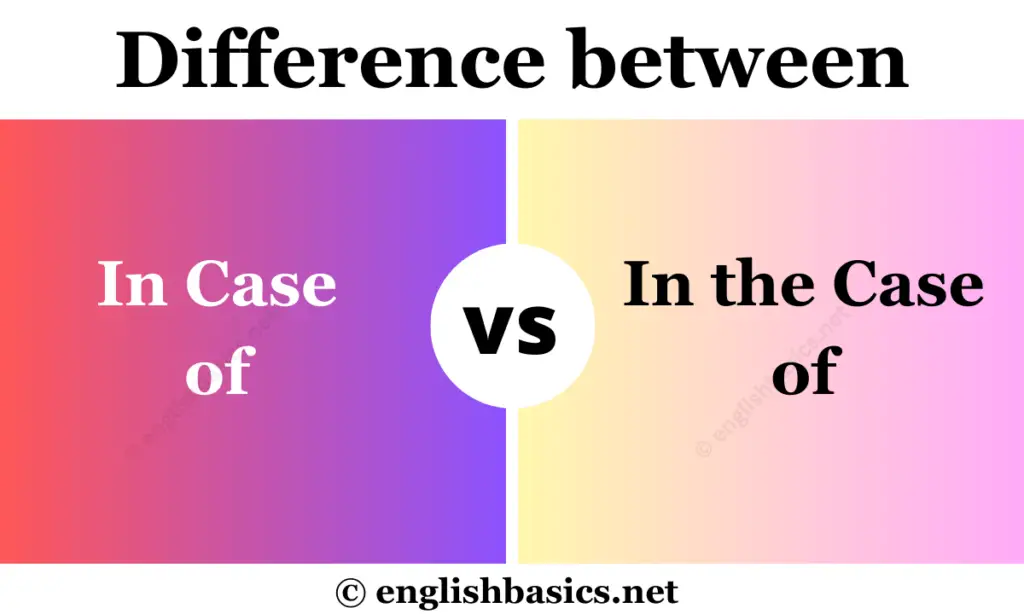It is well said that a bit of change makes a difference. ‘In case of‘ and ‘In the case of‘ can be defined as phrases in English. Both phrases seem to have a similar structure and appearance, but they differ semantically from each other. People frequently commit mistakes in using these phrases in a sentence and take both of them as the exact phrase. Look at these phrases and notice the difference:
- In case of
- In the case of
In the above phrases, only the definite article “The” makes the difference and changes the phrase’s meaning and context entirely. For example:
- Report your boss immediately in case of fire.
- Report your boss immediately in the case of loan defaulters.
Notice the differences in the above sentences. Both phrases convey different meanings and are used in different contexts. Now let’s find out how they semantically differ from each other.

In case of vs In the case of – Difference
The phrase “In case of” expresses – “In the event of a particular situation what we should do if something happens.” The advice or the solution to the unexpected event/situation is already in the sentence. The phrase “In case of” involves the probability of something with its immediate solution or redressal, whereas the phrase “In the case of” is used in the sense of – “in the matter of someone” or “Regarding someone.” Now, look at the following sentences and identify the differences.
In case of in a sentence
- Please call an ambulance in case of an emergency.
- In case of an earthquake, use the stairs.
- You should contact Ms. Spencer in case of any altercation.
- In case of rain, you should use an umbrella.
- Hide under a table in case of an earthquake.
In the case of in a sentence
- In the case of George, we should be strict.
- In the case of this man, we will not grant permission.
- In the case of that girl, nobody stood by her.
- In privately-owned companies, all the employees are supposed to come on time, but in the case of government-owned companies, some employees come late.
- You should be lenient in the case of the security guard.